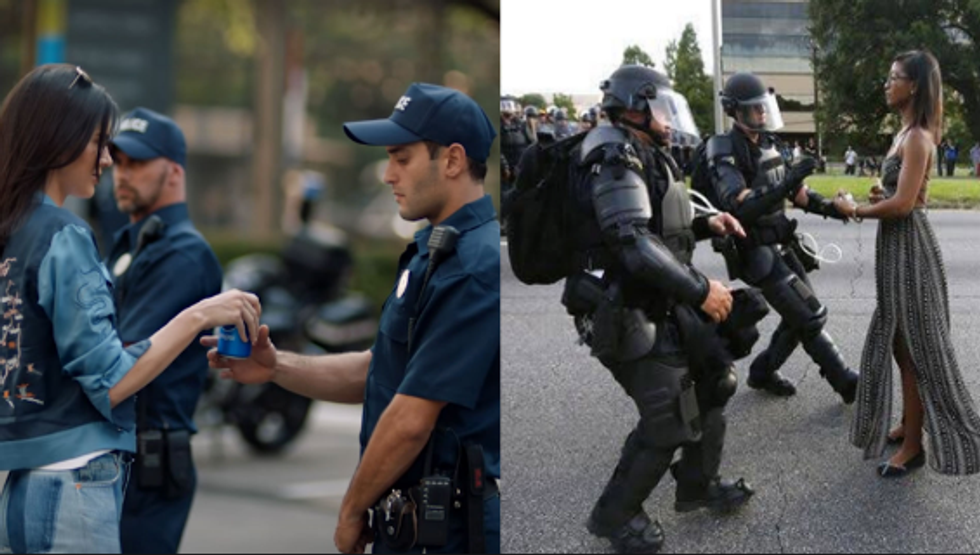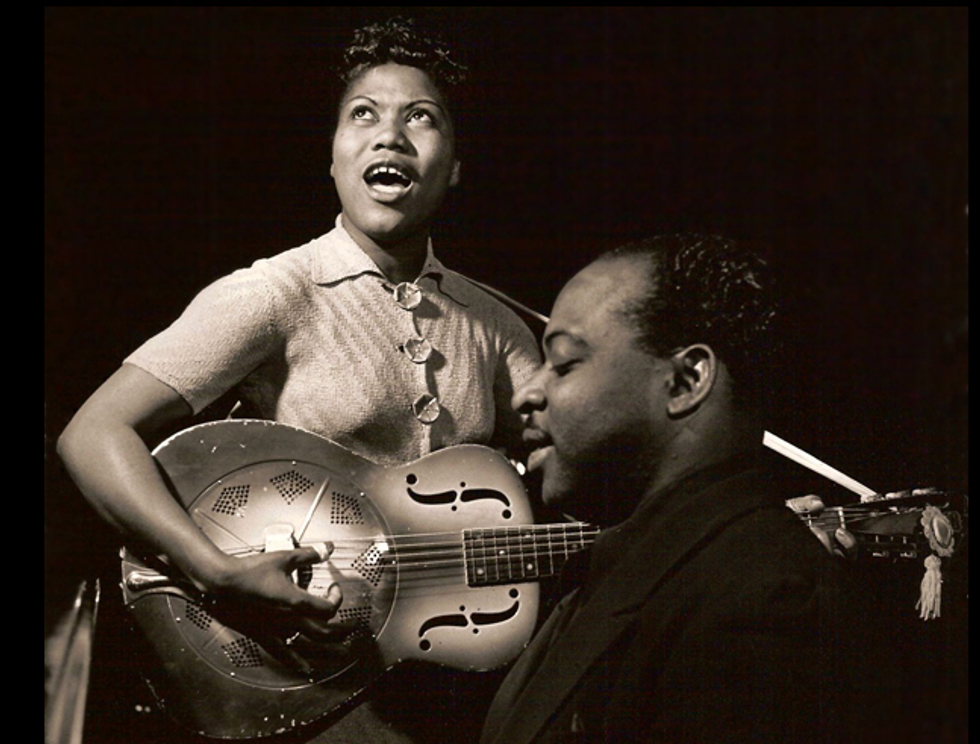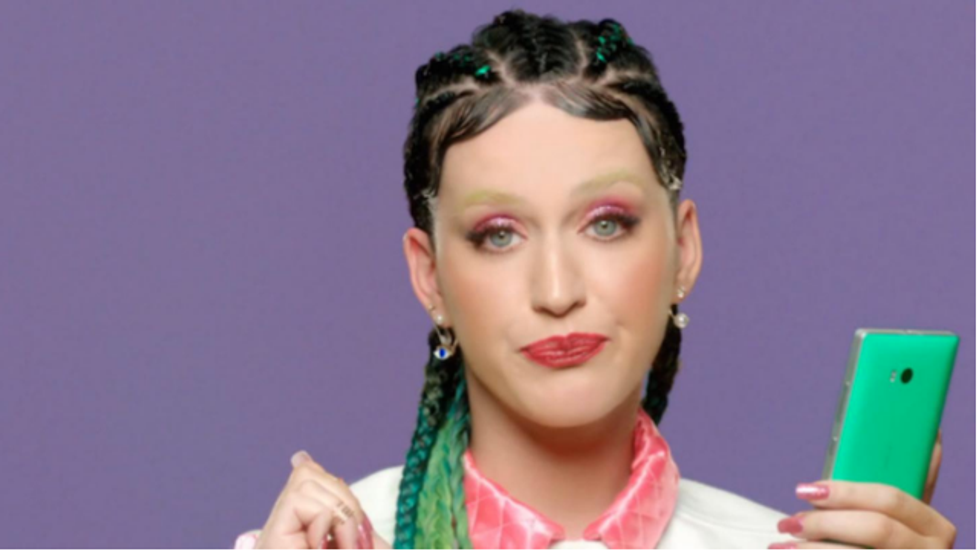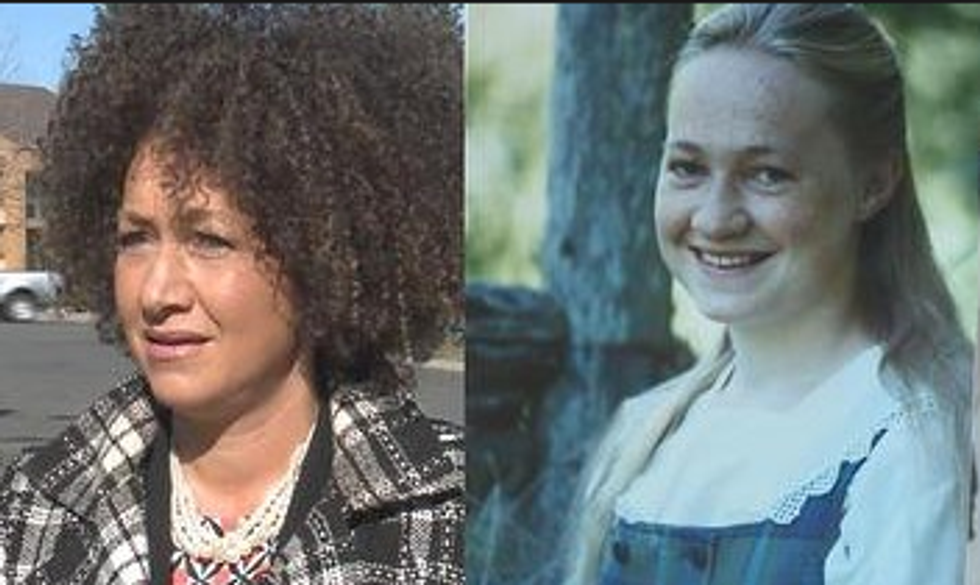Lets first identify what cultural appropriation is.
In the simplest of terms, cultural appropriation is the taking on of various elements of a culture that is not your own without the consent of it people.
Now, you may be asking yourself why it's not okay to enjoy or explore other cultures.
It's actually perfectly fine to appreciate another culture, but APPRECIATION and APPROPRIATION are two completely different things. Because we live in one of the most diverse countries in the world, it is not unreasonable that members of one group pick up traits of another.
Appropriation, however, involves a power dynamic in which members of a dominant group take cultural elements from an oppressed group that they themselves have dominated. And let's clear something up. Appropriation is NOT about familiarity. It IS about exploitation. More often than not, appropriation takes place without a thorough understanding of those cultures--its history, its traditions and the current social experiences of its people.
Pieces of culture we often see appropriated include Holidays (Cinco de Mayo, for example), Black bodies, music and dance, Native American and Middle Eastern fashion and Asian language and cultural symbols.
Okay, so what about cultural exchange, you ask?
Its simple, cultural exchange lacks a power dynamic. Which is what makes it a completely different social phenomenon. An exchange implies that all groups involved are equal. But as we see through racism and prejudice, not all groups are treated as equals.
Appropriation is also not the same as assimilation. Assimilation takes place when members of an oppressed or marginalized group lose elements of their own culture and are absorbed into the culture of the dominant group. Learning and speaking the dominant language as well as partaking in the dominant religion are examples of cultural assimilation.
Here are 5 reasons why cultural appropriation perpetuates racism.
1. It ignores the violent history of oppression.
Minority groups have suffered through genocide, slavery, and colonization under the control of many dominant groups. The ripple effect of that level of trauma stretches for generations. We know this through instances of systematic racism, stereotypes and racial inequalities.
Example: Indigenous activists are calling for the end of Native American mascots. Most nobility, they have petitioned the NFL and the Washington Redsk*ns to not just change its mascot, but rethink the teams' name.
Historically speaking, Native American's in this country were displaced due to European explorers and the introduction of epidemic disease, warfare, and violence--genocide.
There has been a longtime debate as to the exact origin of the term, “red sk*n." Some chalk it up to Native American tribes painting their faces red, while others believe it is in reference to the scalping (and mutilation of genitalia) of Native Americans by early Europeans and some say it derives from skin color. One thing that is for sure is that most agree that the term “red sk*n" is derogatory.
So, why do we continue to use this term and why is a caricature of Native American's a mascot of a national sports team? It's because appropriation--in this case the appropriation of Native American bodies--ignores historical violence.
Example 2: The infamous acquittal of George Zimmerman, the defendant in the murder case of slain teen Trayvon Martin sparked the Black Lives Matter Movement in 2012. Since then a copious number of Black men and women have been unrightfully gunned down, many by law enforcement.
The treatment of Black Americans within the legal system has also been thrust into the spotlight with cases like Marissa Alexander and Kalief Browder. Dozens of demonstrations have taken place in cities all across the U.S in protest.
In April of 2017, Kendell Jenner, a member of the Kardashian clan, a clan which has been accused numerous of times of appropriating both Black and Hip Hop culture, debuted a Pepsi commercial that not only mocked the BLM Movement itself, but insinuated that something as simple as sharing a soda with the police would end the centuries-long riff between law enforcement and communities of color, specifically Black communities.
A still from the commercial where Jenner hands an actor dressed as a police officer a Pepsi can while a wind machine blows through her hair has eerie similarities to the famous shot of protester Ieshia Evans calmly being arrested by Baton Rouge Police during the Baton Rouge protests in July of 2016. The Kardashian's have long been known to embrace elements of Black and Hip Hop culture from everything to hairstyles and fashion, to who they date and marry, but we have yet to see them really speak out on issues that affect Black communities.
2. It allows one to love a culture, but hate its people.
A few years ago activist and actress Amandla Steinberg was famously quoted as asking, “What would America be like if we loved Black people as much as we loved Black culture?" in the viral video, "Don't Cash Crop My Cornrows."
One thing Amandla (and rapper Azealia Banks) pointed out in her video was the tendency of non-Black people to take part in elements of Black culture (specifically Hip Hop culture), monopolize on it, but fail to speak out against overt and institutionalized racism.
It also allows members of a dominant group to overlook the oppression of minority groups as many of the obstacles these marginalized groups face in no way affect the dominant group.
Example 1: Gentrification. One can enjoy the taste of authentic Mexican or Jamaican food, without the realities of the urban neighborhood by running up property costs and running out the members if its community.
Example 2: That Kylie Jenner thing.
Example 3: The commercialism of Yoga after Great Britain banned Indians from practicing it while India was under its rule.
3. It erases origin and allows dominant groups to take credit for things they didn't create.
A question I have often seen present itself in various forms usually during one of those Facebook arguments is, “What have Black people contributed to the world."
Azealia Banks has referred to this as a “cultural smudging." Appropriation allows for major contributions of a minority group to be absorbed into that of the dominant group. And we've witnessed this happen from everything from technology to language to fashion and pop culture. This also opens the door for minority groups to be condemned for things that distinguish them. Why is credit important? It's because it solidifies ones place in the world.
Example: What if I told you certain music genres such as Country and Rock & Roll were created by Black people? Would you believe me? Probably not. These well-known genres are more commonly associated with white people and more specifically white men.
Well, Country was actually born out of the Antebellum South, where instruments like banjos, fiddles, and harmonicas were the “Negros" instruments of choice. As far as Rock & Roll, for most people, Elvis would come to mind as it's pioneer. But Sister Rosetta Tharpe was the first Rock & Roll, artist. Yes, that's right, a Black woman is the originator of Rock & Roll. It has also been long reported that record executives would purposely encourage their white artists to replicate the sounds of Black artists.
4. It allows dominant groups to profit off of oppressed groups.
Along with dominant groups taking credit for aspects of a culture that are not their own, they often profit off of it is as well.
Example 1: Non-Black pop stars altering their appearance through surgery, clothing, hairstyles or other means to more closely resemble physical elements of Hip Hop culture. Like Miley Cyrus' twerking, Iggy Azelea's body implants or Taylor Swift's entire Shake it Off video. All of which have earned them fame and money.
Example 2: I remember as a child seeing Black beauty stores on almost every corner. One item I remember seeing in EVERY Black beauty store were oversized gold earrings. Throughout the 90's and 00's, those earrings were a staple in every urban community. They were $.99 for a pair and every Black girl and Latina from the hood or the projects had them.
Those same girls were often attacked socially. They were referred to and thought of as "ghetto," "uneducated" and even ugly. Fast forward to today, the same earrings that those girls were vilified for wearing ever-so-proudly are now seen on almost every runway, and hipster clothing stores are selling them $15 for a pair.
5. It perpetuates stereotypes and misrepresents.
One aspect of appropriation that never fails to come up year after year (often around Halloween) is “Blackface," and the idea that another persons race or culture can be taken on or off like a costume. The only way one can “dress up" as another race is to draw on those stereotypes they believe makes up who that group of people are.
Example 1: White women wearing braids, putting grills in their mouth while speaking ebonics. This not only insinuates that Black people in general dress this way, but it continues to direct a worldview of entire communities of people.
And to clear something up. This example isn't to say that white women CAN'T wear braids. Like I stated earlier, this is not about "familiarity," this is about exploitation. Those same braids that white women may get praised for having by being called "cool" or "edgy", some Black woman somewhere is being told by her non-Black employer that her braids are unprofessional and a distraction.
Example 2: Rachel Dolezal. Need I say more?
Things we often see appropriated are hairstyles, clothing styles, types of exercise (Yoga, for example), martial arts, music and manners of speaking. And what one has to understand is that the taking of these elements from various minority groups is considered an over-step and is extremely offensive. Minority groups are often demonized for being who they are, while the majority groups are seen as "cool" when taking from these groups.
At the end of the day, it simply comes down to whether or not you believe political correctness is about respect or censorship.























